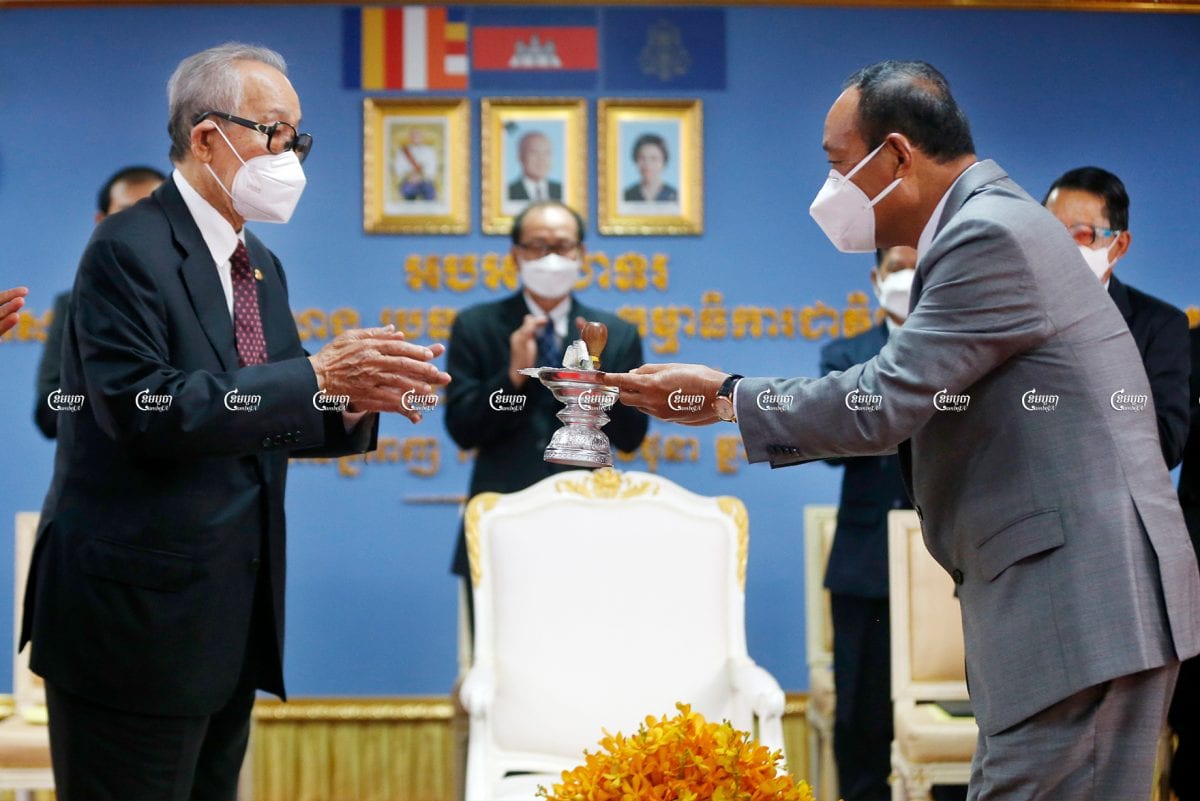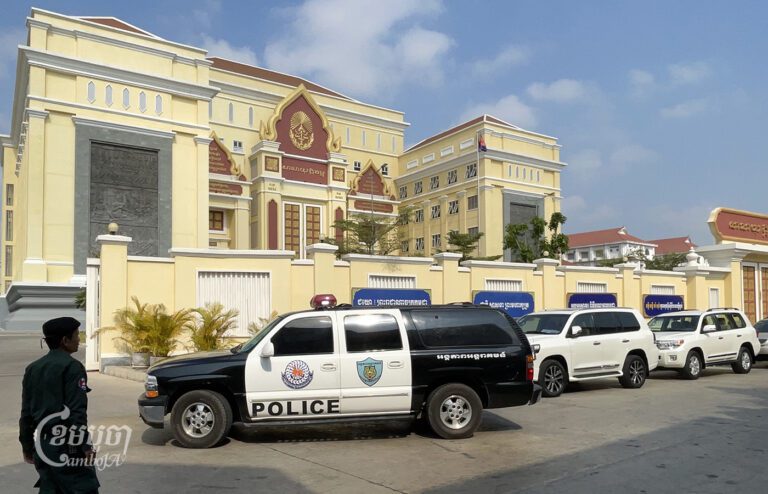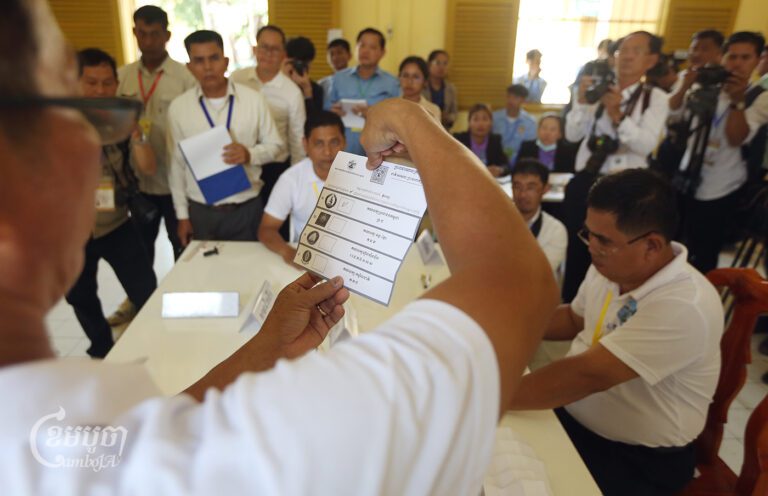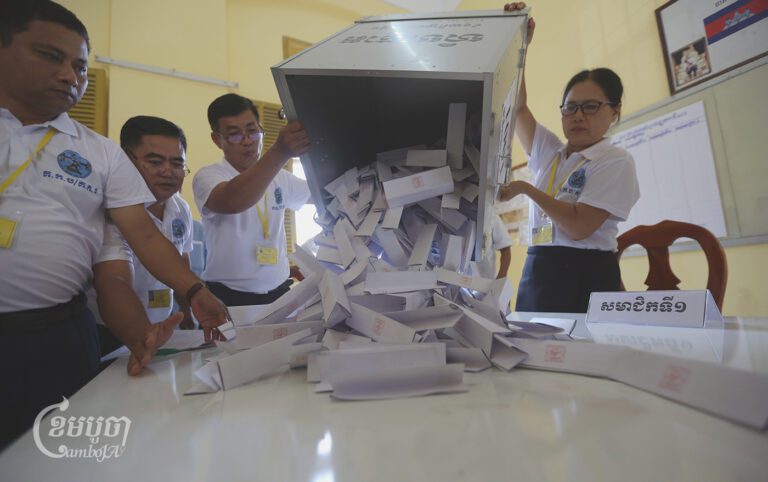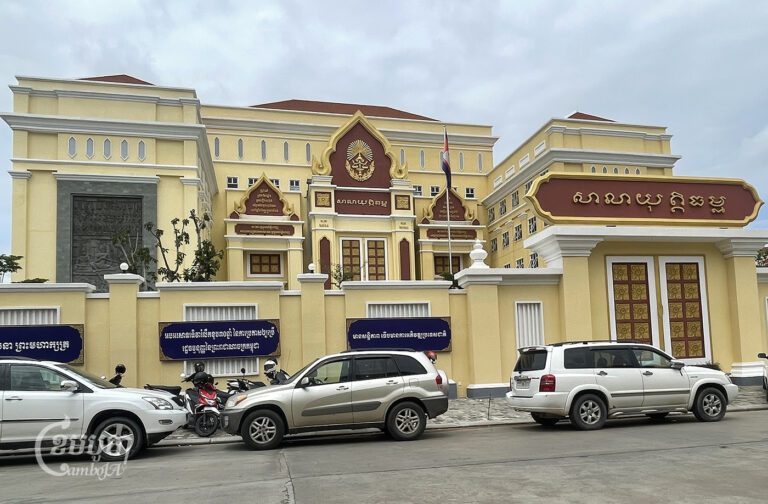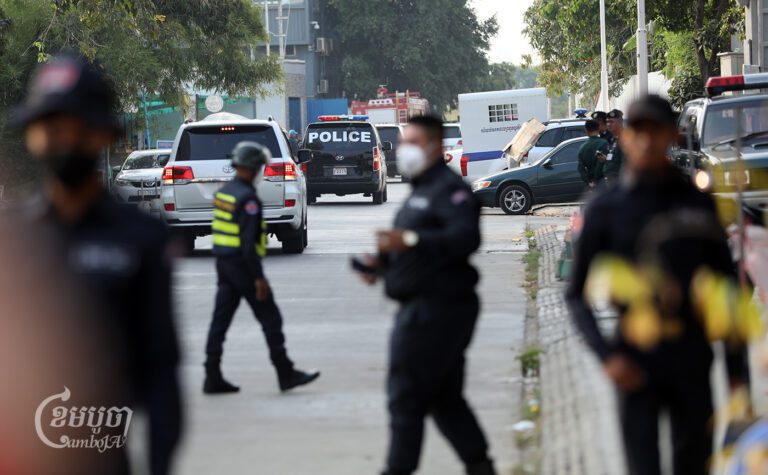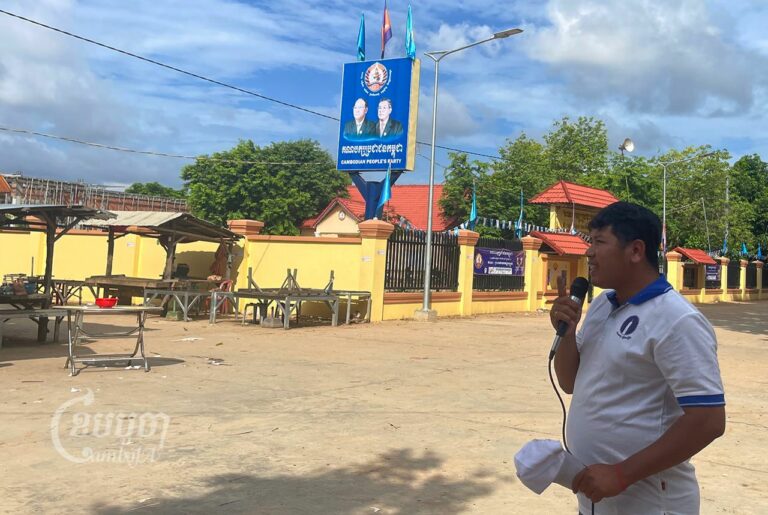The new chairman of the National Election Committee (NEC) pledged his commitment to ensuring that Cambodia’s upcoming commune and national elections are free and fair amid doubts from civil society groups about the former CPP lawmaker’s independence.
During the official announcement of his office-taking at the NEC on Wednesday, Prach Chan vowed to improve the election process in order to build trust from relevant parties. Last week, the National Assembly voted to appoint the former provincial governor as the new NEC chairman to replace Sik Bun Hok, and he was officially appointed by the king the same day. Sik Bun Hok resigned on June 3 due to health issues.
“I am committed to working together with the vice chairmen, members, and all staffers … to manage the National Election Committee institution, and to improve election affairs which conduct in a line of legal instruments to carry out free and fair elections to build trust from relevant parties,” Chan said.
Chan will be overseeing the upcoming local and national elections in 2022 and 2023, as well as the senate and provincial council elections in 2024. He said that the upcoming elections will be carried out normally despite the impact of the COVID-19 pandemic, and that the government had implemented anti-COVID measures throughout the election process as well as a vaccination program.
The new chairman has also called on the national and international communities to continue to cooperate closely with the NEC and join together in carrying out the principle of multiple-party democracy. Currently, all 125 members of Cambodia’s National Assembly are members of the ruling Cambodian People’s Party (CPP) after its landslide victory in the 2018 National Election following the forced dissolution of the opposition Cambodia National Rescue Party (CNRP) the previous year.
Sam Kuntheamy, executive director of the Neutral and Impartial Committee for Free and Fair Elections in Cambodia (NICFEC), said that he was waiting to see the results of the new chairman’s pledge for electoral reform.
“It has just been his commitment, and we have not yet seen the implementation,” he said. “We will monitor whether or not he has followed the laws or remained independent related to the management of the election process to be free and fair.” He noted that many members of the public were reluctant to trust the NEC’s independence, as most of its members came from the ruling party.
Kuntheamy said that the absence of the former opposition CNRP party remains an important thing in contesting elections, as the current political parties weren’t strong enough to challenge the CPP.
“Those political parties cannot compete with the ruling CPP because they don’t have popularity,” he said.
Former CNRP lawmaker Ou Chanrath, who has formed the new Cambodia Reform Party (CRP), said that he did not trust the NEC’s new leader.
“I believe the majority of the public does not have confidence in the NEC institution because we have known over the past elections, we have always faced problems with NEC,” he said.
“Usually, the composition of the committee comes from political parties, they always have a tendency to be biased to their own political party, so it cannot be independent.” He added that he believed the election committee should have its members selected on a non-partisan basis.
CPP spokesman Sok Eysan rejected the claim that the new leader of NEC would not be independent in ensuring that upcoming elections were both free and fair.
“[The opposition] will not have confidence as long as the opposition continues to lose elections,” he said.
“Even though Prach Chan is from a political party, if he has followed his obligation and the laws, the outcome of the election can be accepted,” he said. He added that you cannot find independent people in the world, only independent work that is shown to have a fair outcome.
Both the US and Australian embassies in Cambodia urged the government to open up the nation’s civil and political space.
US embassy spokesman Arend Zwartjes said that the United States government
had stopped funding the National Election Committee in 2017 following the arrest of political party leader Kem Sokha and the subsequent dissolution of the CNRP.
“We have consistently encouraged authorities to reopen civic and political space and reverse democratic backsliding,” he said. Zwartjes stated that the 2018 national elections had been flawed, as they excluded the country’s principal opposition party, and added that when deputy secretary of state Wendy Sherman visited Cambodia in June she had emphasised that the US would like to see “progress” ahead of the upcoming elections.
A spokesperson for the Japanese embassy stated that while the country had not yet decided to give additional assistance ahead of the elections, Japan had in the past provided assistance to the NEC by sending experts, providing ballot boxes and organising staff training programs.
“It is up to Cambodia to decide its high officials and we refrain from commenting on its decision,” the spokesperson said. “We hope that Mr. Chan will cooperate closely with all the parties concerned for the sake of free and fair elections.”
A spokesperson for the Australian embassy echoed the call for political freedoms ahead of the upcoming elections.
“As a long-standing friend of Cambodia, Australia has urged the Royal Government of Cambodia to allow free and open political debate,” they said. “This includes the holding of genuinely competitive and impartial elections in which all political parties, civil society organizations and media can freely participate’.”


